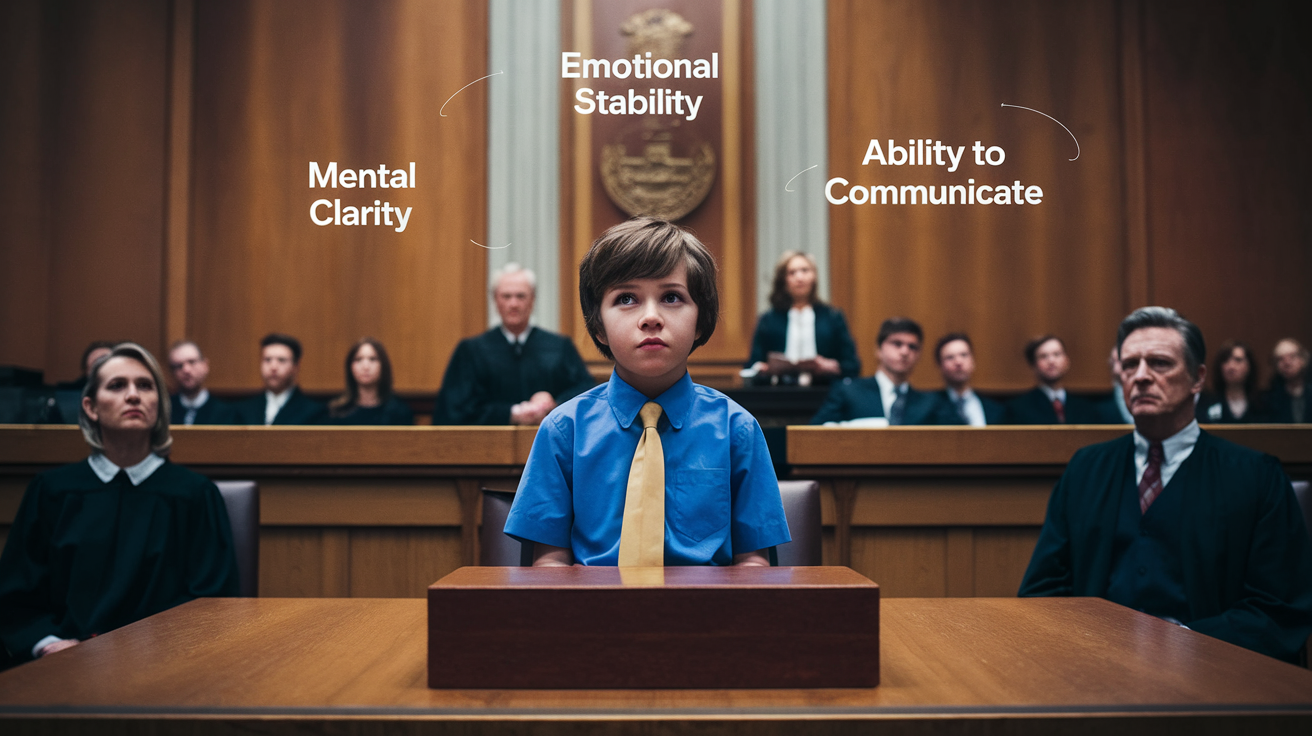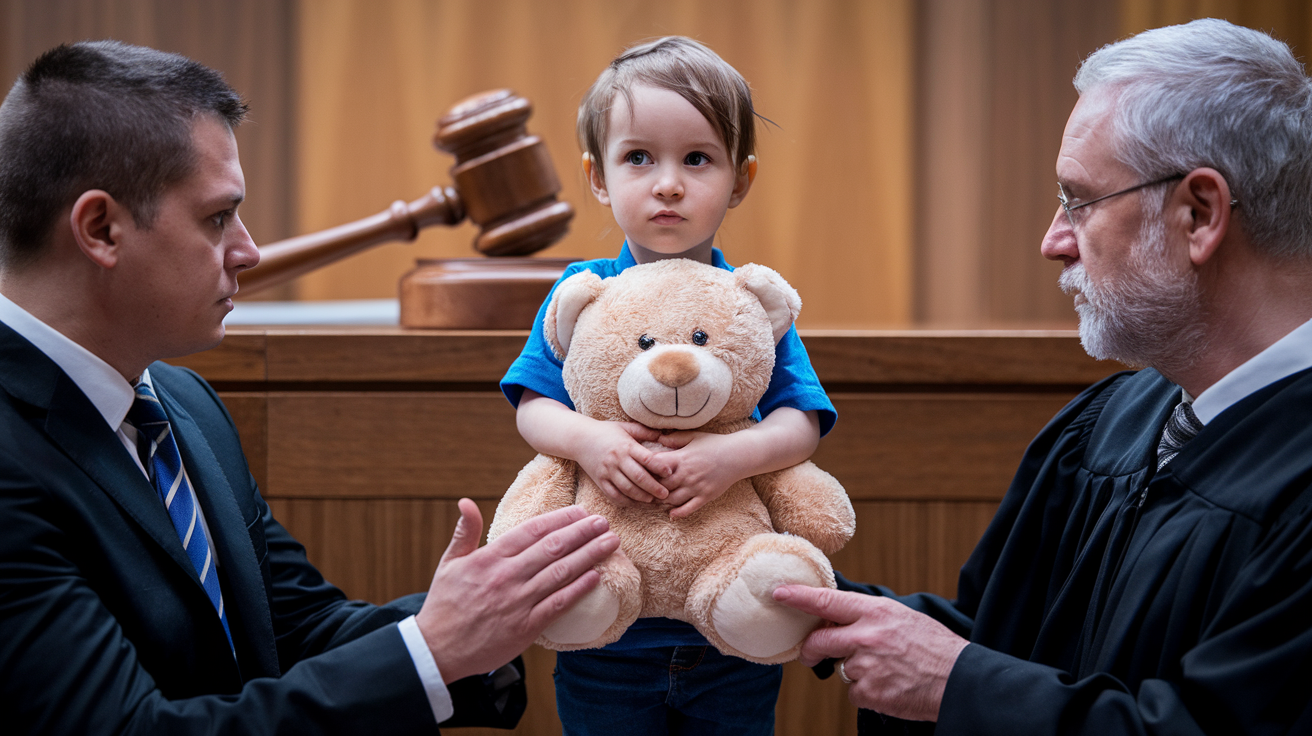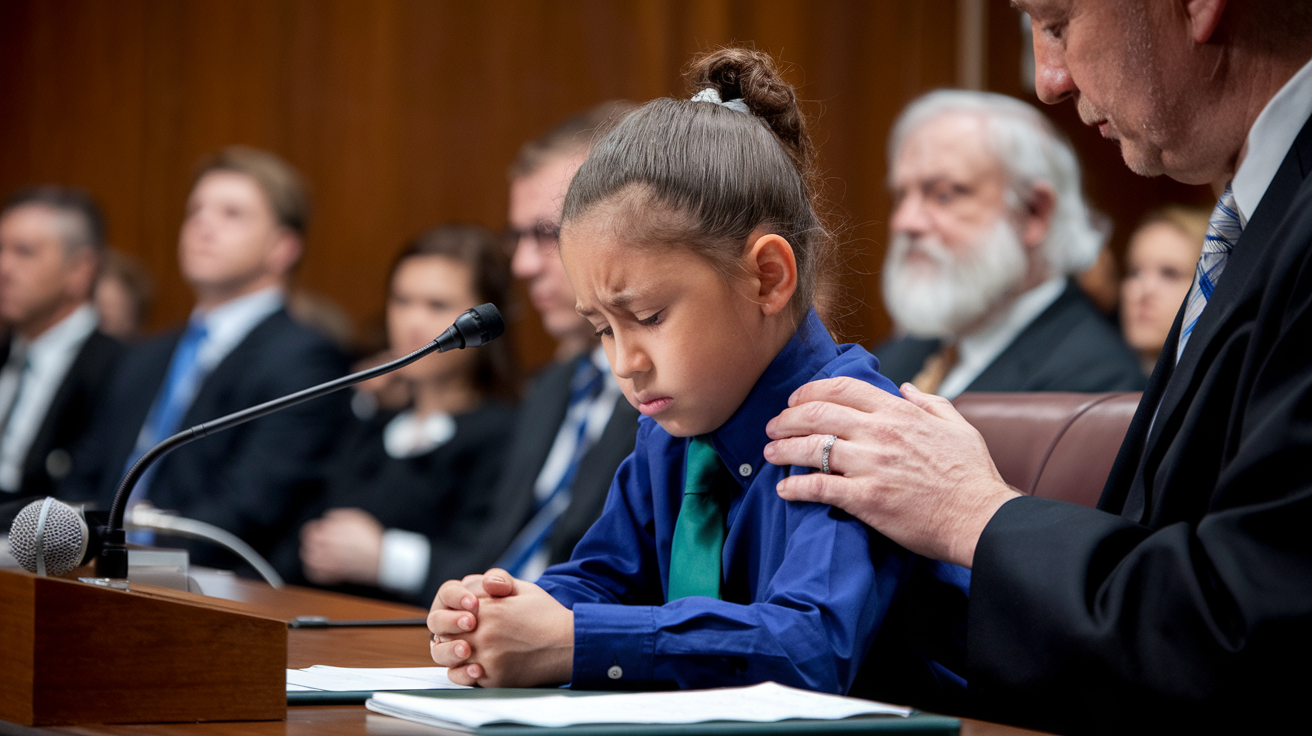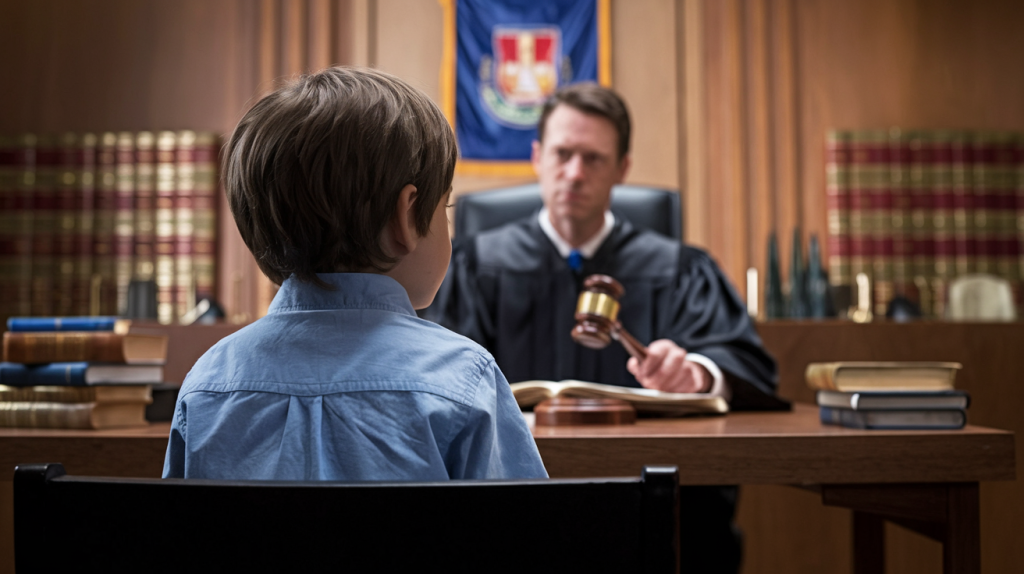Children speaking in court can shape the outcome of many legal cases. Parents and legal teams often wonder about the right age and conditions for a young person to share their story before a judge.
The court looks at each child’s ability to tell what happened and understands the duty to be truthful. This makes age and mental readiness key factors in deciding if a child can testify.
Knowing these rules helps families and attorneys prepare properly. It ensures children get the support they need while protecting the fairness of legal cases.
Let’s look at what makes a child ready to testify and how courts make these important choices.
Is There a Legal Age for a Child to Testify in Court

Courts in the United States do not set a firm minimum age for child witnesses. Instead, they focus on each child’s mental development and skills.
A 5-year-old who can explain events clearly might be allowed to testify, while an older child who struggles may not.
The court checks several key factors before letting a child take the stand, such as
- The child must know the difference between truth and lies
- They need to understand that telling lies in court leads to consequences
- They should be able to share what they saw or experienced in clear word
- And their memory of events should be reliable and consistent
Judges often talk with children before court starts. This helps them see if the child can answer basic questions and stay calm in the courtroom.
They might ask simple things like “What color is your shirt?” or “What did you eat for breakfast?” These questions show if a child can respond well to questions.
The child’s mental and emotional state matters more than their age.
Some young children show strong skills in telling their stories, while others need more time to develop these abilities. Courts work to protect children while making sure justice is served.
Factors Courts Consider Before Allowing a Child to Testify

Before allowing young witnesses to speak, courts look closely at several key aspects. These checks help protect both the child and the legal process.
- Mental and Emotional Maturity: The court needs to see that a child can handle the stress of speaking in front of others. They check if the child can stay focused during questions and remember important details. Being able to express thoughts clearly is also very important.
- Understanding Truth from Lies: Courts test how well children understand honesty’s meaning. They ask questions to check if kids know: “What happens when someone tells a lie?” and “Why does telling the truth matter?” and also, “What promise do they make when they agree to tell the truth in court?”.
- Value of the Child’s Story: The judge looks at how much the child’s words will help solve the case. They consider Whether the child saw the events firsthand?, How clear their memories are?, and Whether other proof exists for the same facts.
- Protection of the Child: Courts put the child’s safety first. They think about How testifying might affect the child’s feelings?, Ways to make the process less stressful, Support needed before and after court, and Whether speaking in court could hurt the child’s growth.
Each case gets special attention to make sure young witnesses feel safe and supported. Courts often provide child-friendly rooms and allow trusted adults to stay nearby during testimony.
How Do Courts Assess if a Child is Ready to Testify
To determine if a child is competent to testify, courts usually conduct a process known as a Competency Hearing. During this hearing, the judge evaluates the child’s ability to,
- Understand the nature of an oath and the importance of telling the truth.
- Give consistent and reliable testimony.
If there’s any doubt about the child’s competency, the judge may consult child psychologists or legal experts who can assess the child’s readiness.
Additionally, Pre-Testimony Interviews with legal professionals or child specialists may be conducted to make sure the child fully understands the process.
In some cases, Guardians Ad Litem, or Child Advocates are appointed to represent the child’s best interests and ensure that their rights are protected throughout the legal process.
Some Special Protections for Child Witnesses in Court

Courts have created many ways to help young witnesses feel secure when sharing their stories. These methods make the process less scary while still following legal rules.
- Support Persons Allowed During Testimony: Most courts let a trusted adult sit near the child during testimony. This person might be a parent, counselor, or support worker who helps the child feel more at ease. Having a familiar face nearby often helps children speak more openly about what they know.
- Video Testimonies or Remote Testifying Options: Some courts use video links to protect young witnesses. Children can talk from a different room instead of sitting in the main courtroom. They see the judge through a TV screen and can share their story without facing a room full of people. This setup often helps children feel braver about speaking up.
- Closed Courtrooms: Many courts provide special waiting areas for child witnesses. These rooms have toys, books, and comfortable furniture to help children relax before testifying. This space gives them a break from the formal court setting and helps reduce worry about speaking in court.
Potential Impact on Children Testifying in Court

While the court system works to minimize the stress for children who testify, it’s important to recognize the potential emotional and psychological effects:
- Feeling nervous or worried before court dates
- Sleep changes or bad dreams about speaking up
- Tummy aches or headaches from stress
- Mixed feelings about telling their story
- Extra clinginess with parents or caregivers
- Feeling scared about seeing certain people
- Worrying about getting answers wrong
- Fear of letting down family members
- Relief after finishing their testimony
- Confusion about complex legal terms
- Changes in friendships due to stress
- More time spent with family for support
- Less interest in usual fun activities
- Need for extra attention from teachers
Conclusion
Speaking in court affects each child differently. After learning about the rules, checks, and supports in place, parents can better help their children through this process.
Courts work hard to keep young witnesses safe while making sure justice happens. They look at each child’s readiness instead of just their age.
With proper support and protection, many children handle their court duties well.
If your child needs to testify, remember the court offers many helpful tools.
From video links to special waiting rooms, these supports can make a big difference. Talk to your lawyer about which options might work best for your child.
Frequently Asked Questions
What is the Youngest Age to Testify?
No set minimum age exists. Courts check if children can tell the truth from lies and share their stories clearly, which some can do as young as age 4 or 5.
Who Cannot Testify in the Court?
People who can’t understand questions, tell the truth from lies or communicate clearly cannot testify. This includes very young children and those with severe mental limitations.
Why Shouldn’t Children Testify in the Court?
Testifying can cause stress and emotional harm to children. They might feel scared, have trouble sleeping, or face problems at school. Courts weigh these risks against the need for their testimony.








